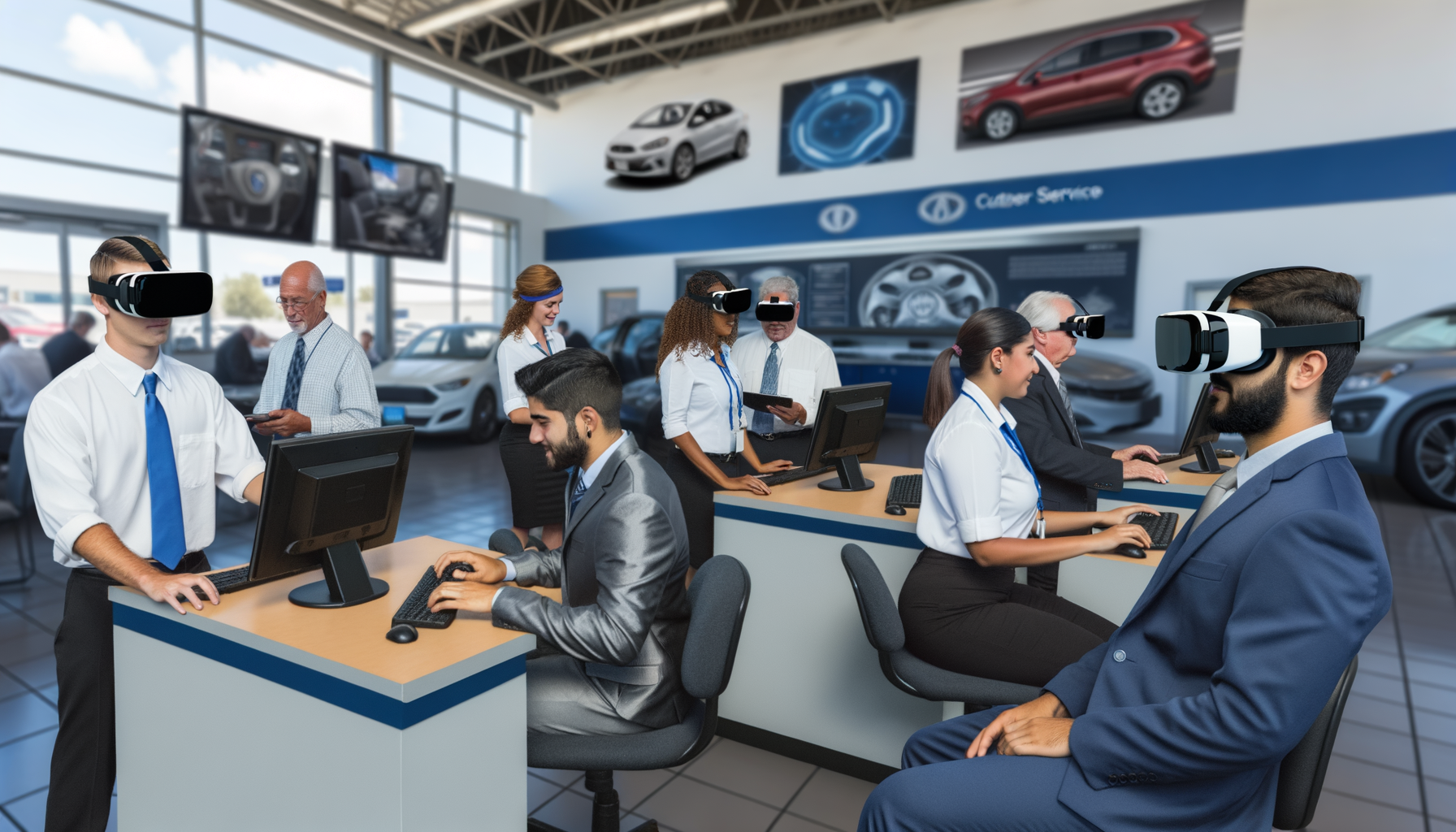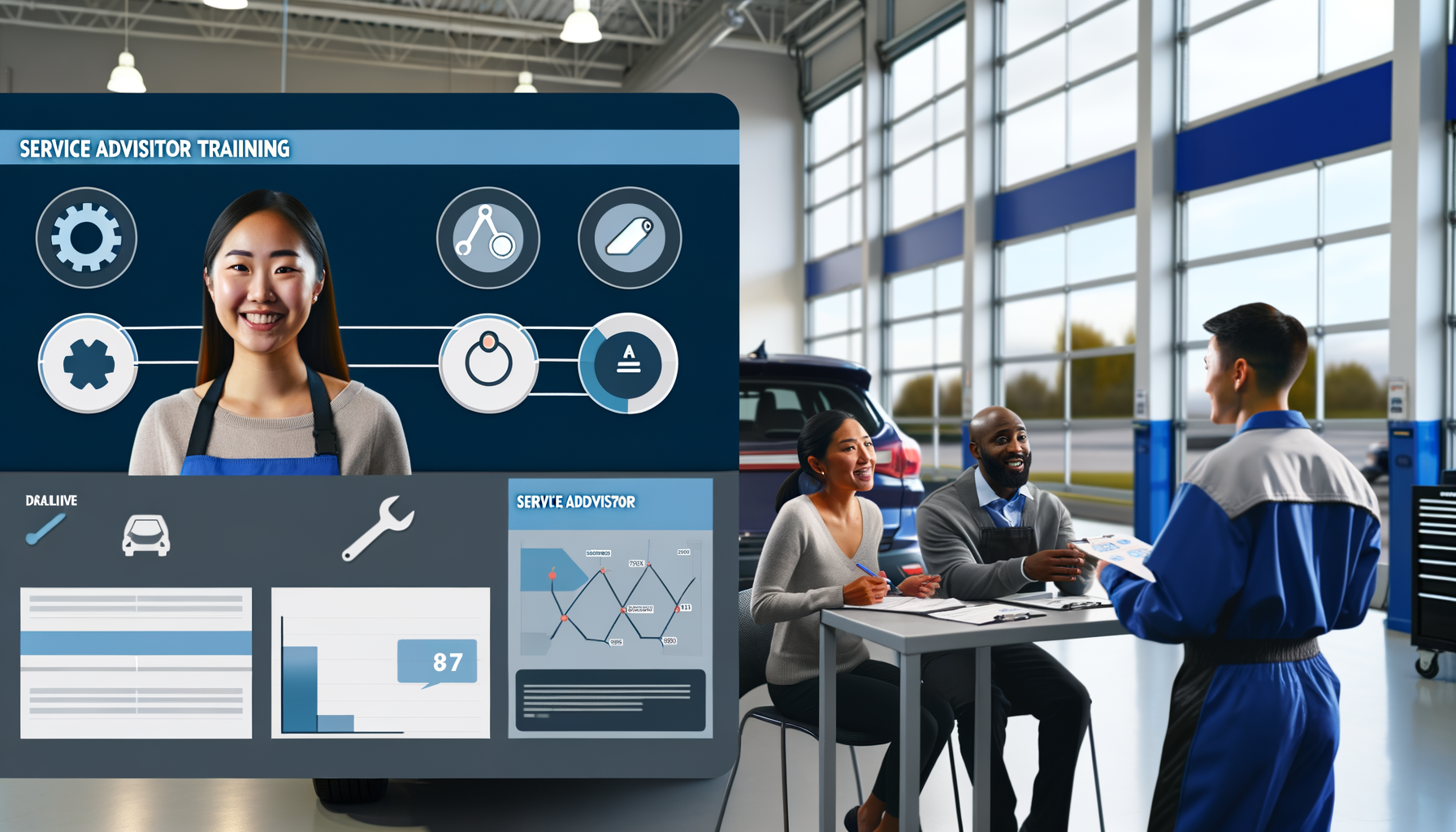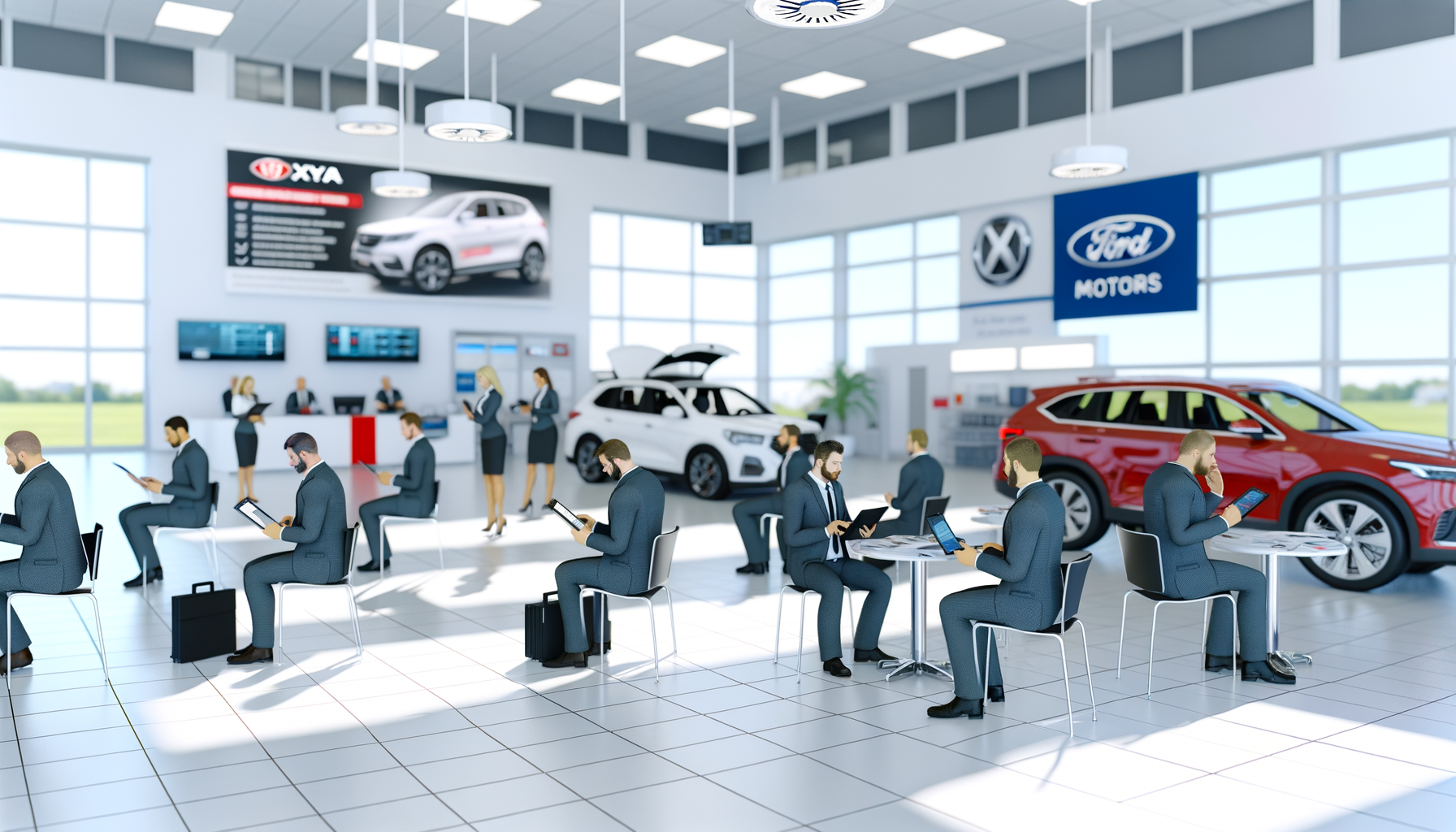Revolutionize Your Service Department: The Ultimate 2025 Guide to Service Advisor Training

Understanding the Evolving Role of Service Advisors

The service advisor's role has transformed significantly, especially with the rise of electric vehicles (EVs) which have led to a 15% increase in EV-related repairs. This shift requires a deep technical understanding and the ability to communicate complex information effectively.
Service advisors are not just order takers; they are pivotal in ensuring customer satisfaction and driving sales through effective upselling techniques and personalized service.
Adapting to these changes demands a robust training regimen that incorporates the latest automotive trends and customer service best practices.
Designing Comprehensive Training Programs

Creating a successful training program begins with understanding the specific needs of your dealership and service team.
Integrating a mix of technical skills and soft skills training can address both the technical demands and customer interaction requirements.
Develop a scalable training model that includes hands-on workshops, digital learning modules, and continuous feedback loops.
Leveraging Technology for Training Excellence

With 68% of customers preferring digital service scheduling, it's vital for service advisors to be proficient in using dealership management systems and customer portals.
Implementing training simulations using virtual reality (VR) or augmented reality (AR) can provide immersive learning experiences that mirror real-world scenarios.
Utilize training automation tools that allow service managers to track progress and tailor content to individual learning paths.
Measuring Success: Key Metrics and Analytics

Evaluating the return on investment (ROI) of training programs requires setting clear benchmarks from the outset.
Key performance indicators (KPIs) such as improved customer satisfaction scores, increased upselling rates, and reduced training time can provide insights into training effectiveness.
Utilize analytics platforms that aggregate data across service touchpoints to identify training impact and areas for improvement.
Overcoming Common Training Challenges

Resistance to change can often hinder training implementation. Address this by fostering a culture of continuous improvement and open communication.
Parts shortages also pose a challenge by disrupting service operations. Mitigate this by incorporating adaptable training that addresses supply chain variability.
Overcome high staff turnover by establishing mentorship programs that pair new advisors with experienced mentors, ensuring knowledge transfer and professional growth.
Case Study: Successful Training Implementation

XYZ Motors implemented a hybrid training model combining in-person workshops and digital modules, leading to a 30% increase in customer satisfaction scores within six months.
The dealership leveraged Auto Pro Solutions software to automate training management and track KPIs, reducing administrative burden and enhancing focus on training quality.
Through continuous feedback and adaptation, XYZ Motors evolved its training approach, resulting in a 15% reduction in service advisor turnover.
Related Topics
Ready to take your service department to the next level?
Schedule your demo today and experience the power of Auto Pro Solutions.
Schedule Demo